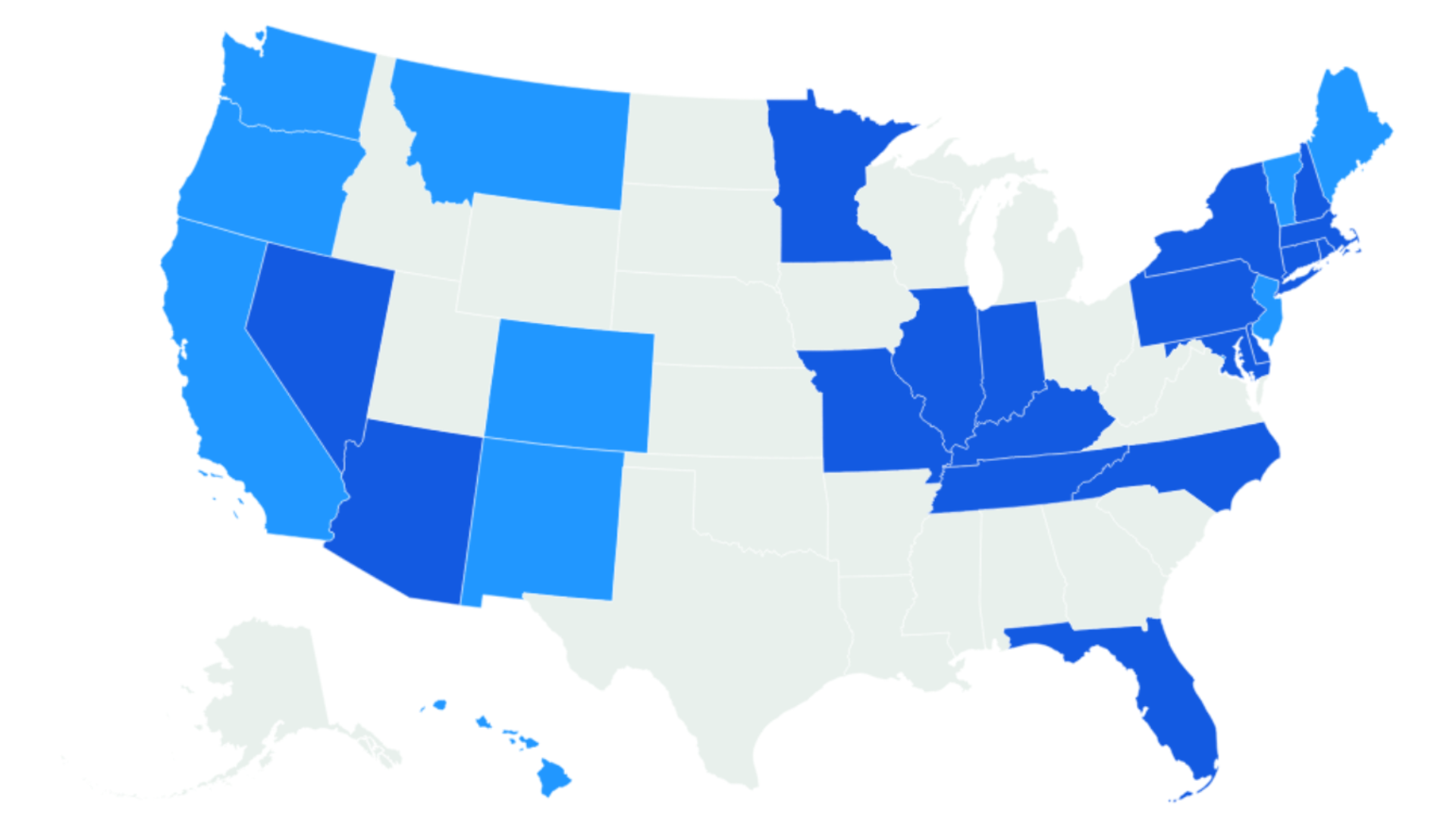
New York has recently joined a number of other U.S. states that have made assisted dying legal.
The state’s Senate approved a bill on Monday allowing constituents with terminal diagnoses to end their lives on their own terms, and the legislation is now headed to Governor Kathy Hochul for her to sign into law.
There are currently 10 states, as well as the District of Columbia, that have passed laws making medical assistance in dying (MAID) legal, according to Death With Dignity, and a number of others are considering similar legislation this year.
Why It Matters
Assisted dying laws are extremely divisive and are being considered and sworn into law in various countries across the globe.
Those in favor say the legislation allows terminally ill individuals to seek medical assistance in ending their lives under specific conditions, promoting personal autonomy and a relief from suffering.
Critics have voiced concern over suicide contagion, a phenomenon where increased exposure to suicide is believed to trigger suicidal behavior in others, and what the legislation means for the deaths of patients struggling with depression.
What To Know
In the U.S., California, Colorado, Hawaii, Maine, Montana, New Jersey, New Mexico, Oregon, Vermont, and Washington all have legislation in place that enables those in the states to access MAID.
Oregon was one of the first countries in the world to establish this form of support for patients and did so in 1997.
Since then, other assisted dying laws in the country have utilized the state’s legal framework for their own MAID legislation, according to the BBC.
New York is not the only state that has been eyeing such legislation, as more than 15 other states have also been deliberating MAID laws this year.
These states include Arizona, Connecticut, Delaware, Florida, Illinois, Indiana, Kentucky, Maryland, Massachusetts, Minnesota, Missouri, Nevada, New Hampshire, North Carolina, Pennsylvania, Rhode Island, and Tennessee.
In America, for a patient to have access to medically assisted dying, they typically have to be terminally ill and expected to die within six months, under the terms of the “Death with Dignity Act,” according to an Oregon government report.
They must also be over the age of 18 and capable of making and communicating health care decisions.
A patient’s request to access MAID services must also be approved by two doctors, and their request must be witnessed by two adults, who have no claim to any form of inheritance in the incidence of the patient’s death.
Should they feel it necessary, the doctors can refer the patient for a psychiatric evaluation.
While MAID laws remain divisive, a Gallup poll conducted last year found that seven in 10 Americans, so 71 percent, believed medical doctors should be “allowed by law to end a patient’s life by some painless means if the patient and his or her family request it.”
What People Are Saying
Professor Thaddeus Mason Pope, a professor of law at the Mitchell Hamline School of Law, Minnesota, told Newsweek: “Millions of Americans die every year. Hospice and palliative care can address the physical and existential suffering of most but not all dying patients. MAID is for the small subset whose suffering is refractory to other measures.”
He added: “Nearly 20 states considered MAID legislation in 2025, and many of these bills made significant progress passing one or both legislative chambers. While fewer than 1 percent use MAID, nearly 75 percent of the public want to have this option. Decades of experience in other states shows a solid patient safety track record. Generally blue states pass MAID legislation and red ones do not. Few expect to see MAID authorized in the South or even the Midwest except for Illinois and Minnesota.”
Alan Meisel, professor of law Emeritus at the University of Pittsburgh School of Law, Pennsylvania, told Newsweek: “Assisted dying laws allow people who are near the end of life to die in a dignified fashion, without being hooked up to medical machinery which only extends the process of dying, often in a painful way. People have understood how undignified the dying process can be and are seeking to implement laws that have proved highly successful in other states and countries.”
He added: “The states that have been hesitant to enact such laws are often those with large populations of people whose religious beliefs hold that a scintilla of life, no matter how painful or undignified, must be preserved at all costs. These people are often not in the majority but can be very vocal in opposing such laws and therefore state legislators can be reluctant to enact such laws, even though a majority may support them, because they are afraid of damage to their political careers.”
What Happens Next
As a significant number of states are set to discuss possible MAID legislation in the coming months, there could be an increase in the legalization of the practice in America.
